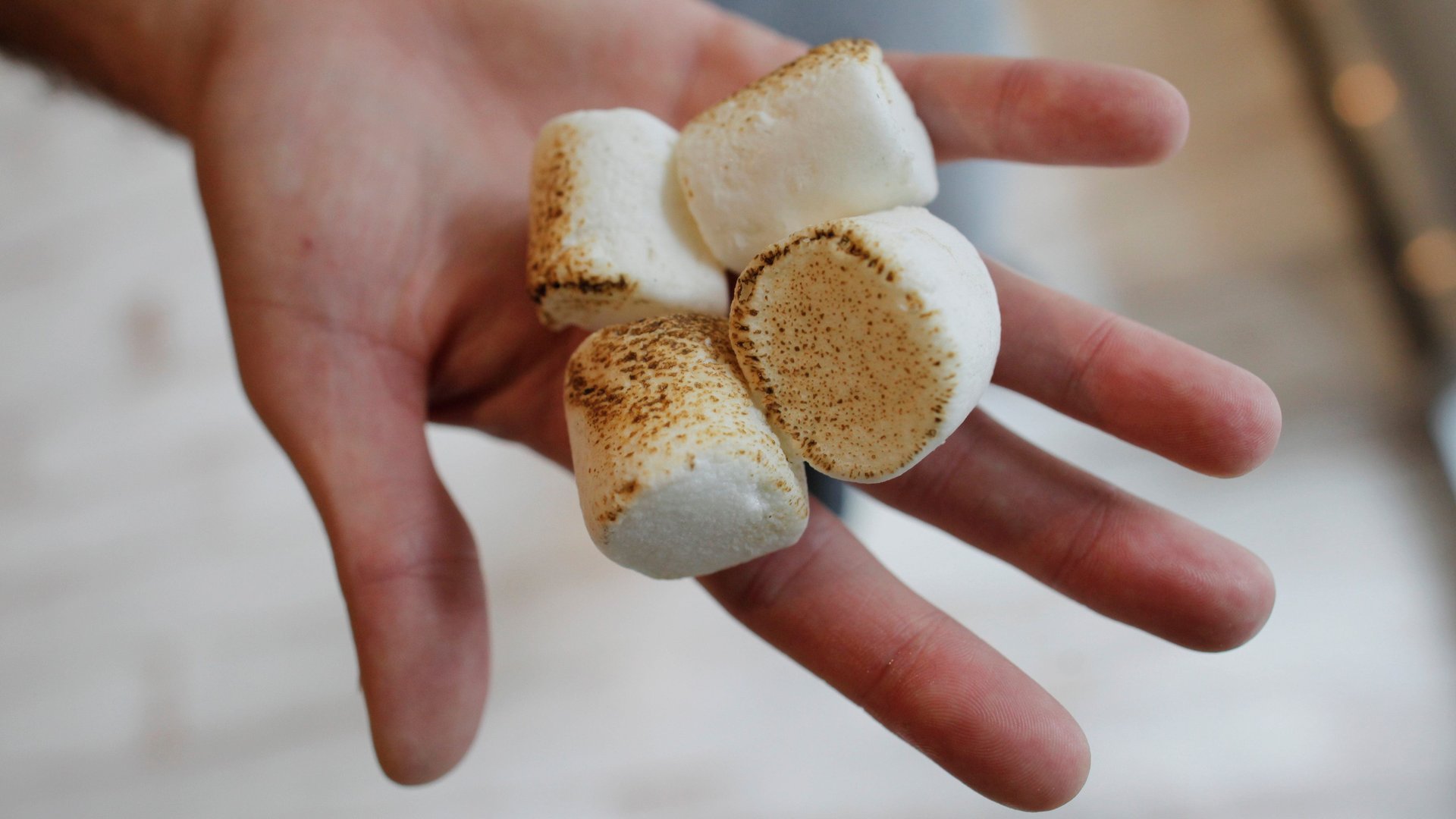The instant gratification generation has more patience than kids from the ’60s
Kids really love marshmallows. That’s probably why one of the most famous psychological experiments of all used the treat to measure children’s personality traits.


Kids really love marshmallows. That’s probably why one of the most famous psychological experiments of all used the treat to measure children’s personality traits.
The study (pdf), conducted in 1990 by Yuichi Shoda and Walter Mischel of Columbia University and Philip K. Peake of Smith College, measured kids’ ability to delay immediate satisfaction for the sake of future gratification.
A sample of 185 preschoolers in the Bing School at Stanford University were left alone with a desirable snack (some kids got marshmallows, others got pretzels) and offered a deal: If they could delay eating the marshmallow until the facilitator returned, they would get two marshmallows. Some kids resisted the temptation; others didn’t. The first data were gathered between 1968 and 1974, and the researchers followed up between 1981 and 1982.
When the psychologists returned to the tests’ subjects, they found evidence that children who had held out for the second marshmallow tended to be more well-adjusted as adolescents, do better on the SATs, and have a lower body mass index (BMI). The simple test became associated with the idea that self-control is key to human success and development.
Kids now have more self-control than in the ’60s
A new study (pdf), published this year in the journal Developmental Psychology and led by University of Minnesota researcher Stephanie Carlson, looks at whether the findings of the original marshmallow test are still applicable today. First, Carlson and her team measured US adults’ perceptions of self-control in kids through an online survey in 2015. Then, they compared children’s performance across decades on the marshmallow test to see if adults’ perceptions of kids’ self-control added up with how much self-control today’s kids actually had. They didn’t.
In an online survey of 358 American adults, the researchers found that 72% of respondents thought children today would wait for a shorter period of time than children in the original marshmallow test, and 75% believed that children now would have less self-control.
That’s not what the numbers show.
Carlson and colleagues compared how children performed in the late 1960s with how children performed on replications of the test in the 1980s and 2000s. They found children who participated in studies between 2002 and 2012 waited an average of two minutes longer than those from the ’60s and one minute longer than those in the ’80s.
“We don’t actually know why that is, but we can speculate,” Carlson told Quartz. “We believe increases in abstract thought, along with rising preschool enrollment, changes in parenting and, paradoxically, cognitive skills associated with screen technologies, may be contributing to generational improvements in the ability to delay gratification,” she explained.
Carlson and her team didn’t ask the adults who took their survey why they thought kids today would have so much less self-control. She speculated it had to do with nostalgia for simpler times.
“There is a kind of received wisdom that kids today are less self-controlled and seek more immediate gratification,” she said. “I think if we were to ask some of the adults…there is a kind of nostalgia for the good old days, when kids didn’t have as many distractions. But that could be a misperception, as it turns out, at least with respect to how kids are capable of delaying gratification in this particular assessment.”
Challenges to the original marshmallow test
In recent years, the marshmallow test’s reliability as a predictor of later achievement has taken a hit. A study published in Psychological Science replicated the marshmallow test and came to a different conclusion than the original study. Using a much larger and more diverse sample size, they found that socio-economic factors—such as household income or parental education—better explain both the ability to delay gratification and their long-term success.
As Jessica McCrory Calarco, an associate professor of sociology at Indiana University, explained in The Atlantic, the new findings suggested that “the capacity to hold out for a second marshmallow is shaped in large part by a child’s social and economic background—and, in turn, that that background, not the ability to delay gratification, is what’s behind kids’ long-term success.”